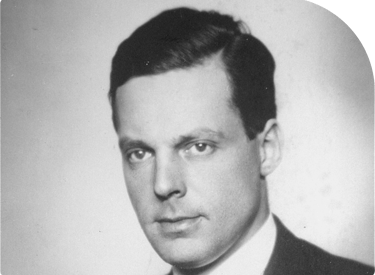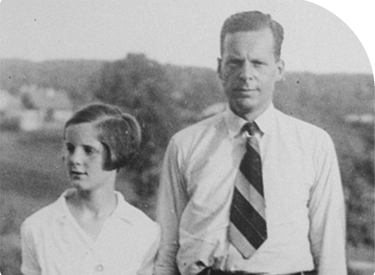Jan Zwartendijk
Jan Zwartendijk (Dutch: Jan Zwartendijk) [29/07/1896 - 14/09/1976] was a Dutch businessman, Honorary Consul of the Kingdom of the Netherlands in Lithuania in June-August 1940, married, with a daughter and two sons. The second son Robert was born in Kaunas in September 1939.
1938 - 1940 Director of Lietuva Philips in Kaunas. From July to August 1940, as Honorary Consul of the Netherlands in Kaunas, during the Soviet occupation of Lithuania, he issued visas for the final destination of the Dutch colonies of Curaçao, Suriname and other Caribbean colonies. In September 1940, when he and his family returned to the Nazi-occupied Netherlands, he destroyed all the documents relating to the issuing of visas. The surviving visas indicate that at least 2 345 visas were issued.


The unspoken cooperation with the Japanese Vice-Consul in Kaunas, Chiyune Sugihara, enabled the rescue of several thousand World War II refugees (final destination visa - Dutch colonies in the Caribbean with Japanese transit visa).
Until his death, Zwartendijk did not know whether any of the holders of the visas he issued survived. A letter informing him that over 2000 visa holders had escaped reached Zwartendijk's household two days after his funeral. Mr Philips' radio name was circulating among refugees in Lithuania, and Zwartendijk was also known as the Angel of Curaçao.
In 1997, after his death, Mr Zwartendijk was posthumously awarded the title of Righteous Among the Nations by Yad Vashem for saving Jews from the Holocaust.
The photo shows Jan Zwartendijk, Honorary Consul of the Netherlands in Kaunas, with his daughter Edita and son Jan Zwartendijk Jr. in Kaunas, 1940.


Nuotraukoje Nyderlandų garbės konsulas Kaune Janas Zwartendijkas su dukra Edita Kaune, 1940 m.
"My father numbered the visas he issued, but the list he compiled was burned along with all the other consular files. Ambassador de Dekker (in Riga) ordered all the Dutch consulates to do this before he himself left for Stockholm on 16 August 1940; he suspected that the Soviets would rummage through these files if they were sent by post to Stockholm. One of my own most important memories of those August days is that I was allowed to take part in the burning of everything in a small oven in the Philips warehouse (I was 11 years old).
Decades later, my father said that he thought he had issued between 1200 and 1400 visas and that he could not remember the exact wording of the 'visa'. As we now know from the surviving visas, <...> he did indeed handwrite about 1300 visas, but then he got a stamp and carried on." (From an interview with J. Zwartedijk Jr., 7 April 2009)


Jan Zwartendijk with the youngest son, Robert, in the background of his rented apartment on Perkūnas Avenue, 1940.

